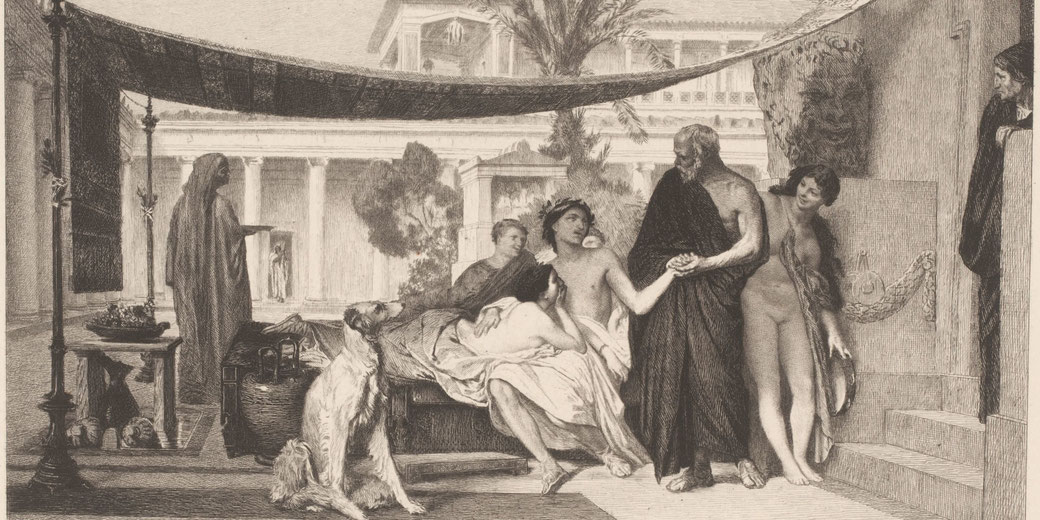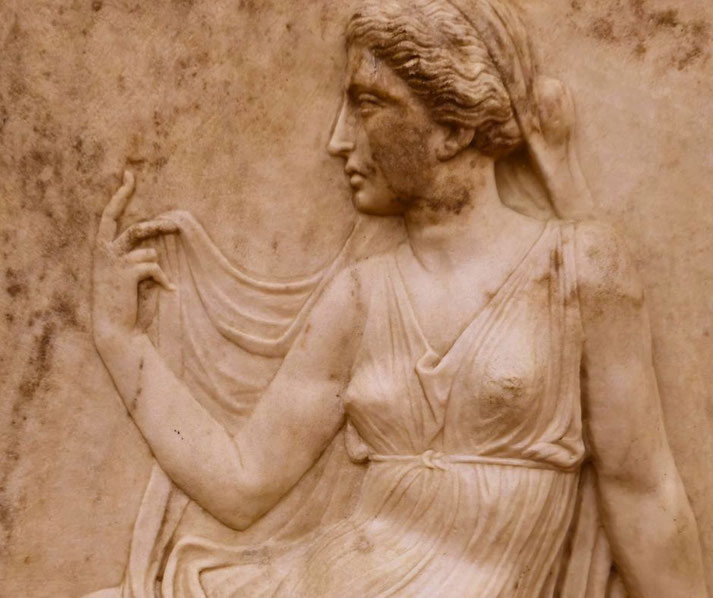The dramatic life of Aspasia and her scandalous relationship with Pericles

While most discussions about ancient Greek political power focus on the decisions and actions of powerful men, it is easy to ignore the impact of women like Aspasia of Miletus.
She lived during the Golden Age of Athens, an exciting historical period renowned for its advancements in philosophy, arts, and democracy.
Her influence reached the very top of Athenian society through her intimate association with Pericles, the city's most prominent leader.
Aspasia became a central, although contentious, player in the political power struggles of classical Greece.
The mystery around Aspasia’s arrival in Athens
Aspasia was born around 470 BC in the city of Miletus, which was then a prominent center of learning and culture in Asia Minor.
For some reason, which still remains unknown, she made the journey across the Aegean Sea to the city of Athens when she was in her late teens.
The fact that she had the freedom and resources to make this trip a reality indicates that she already had access to some wealth.
However, upon her arrival in Athens, Aspasia was classified as a metic: a status granted to foreigners who were permanent residents but not citizens.
This status limited her rights in many ways. Nevertheless, it did not prevent her from making significant social connections.
She arrived at an ideal time. Athens was at the peak of its Golden Age. The streets were alive with philosophical inquiry and artistic expression.
Aspasia, with her keen intellect and persuasive charm, quickly integrated into these circles.
She established herself in the bustling Agora, the center of Athenian life, where philosophers, politicians, and citizens engaged in daily discourse.
She is said to have opened her own ‘salon’ in her home where people could meet and talk.
Here, she even brushed shoulders with figures like Socrates, Anaxagoras, and playwright Euripides.
It is said that Aspasia herself was an active participant in these discussions, challenging and contributing to the discussions with her insights.
From her position in this intellectual milieu, she became a recognized figure in her own right, known throughout Athens for her own formidable intellectual prowess.
Her role in these discussions was against the traditionally restricted roles of women.

Relationship with Pericles
Aspasia’s life changed when she met Pericles, the city's leading statesman. The exact time and location of their original meeting is unknown, but their relationship quickly became very close.
Despite the city's restrictive views on women's roles, she became his public partner and personal confidante.
Pericles was a widower and may have found in Aspasia not only romantic companionship but also an intellectual equal whose advice he valued highly.
Unfortunately, their relationship faced almost instant scrutiny from various Athenian citizens.
They publicly disapproved of Aspasia's foreign origins and her involvement in Pericles' political decisions.
In particular, many saw her influence as inappropriate for a woman. Her relationship with Pericles provided her with unprecedented access to the inner workings of Athenian state affairs, leading to suspicions and accusations from Pericles' political opponents.
This criticism actually surfaced in the comedic plays of the time. Comic playwrights like Aristophanes often caricatured her in their plays, suggesting she was involved in decisions leading to the Samian War, although historical evidence for such claims is scant.
Nonetheless, Pericles stood by Aspasia amid these accusations, and at one point, he even defended her in court against charges of impiety.
This was a serious accusation in religiously conservative Athens. But, through this act, Pericles demonstrated his deep personal commitment to her.
He even stated that he had a profound trust in her counsel. Therefore, their relationship continued to be a focal point of Athenian political life.

What happened to Aspasia?
After the death of Pericles during the plague that devastated Athens in 429 BC, Aspasia was left without her most significant ally and protector.
However, her influence within intellectual circles persisted as she maintained her salon, which continued to be a center for philosophical and political discourse.
Aspasia is believed to have then formed a relationship with another prominent Athenian, Lysicles, a sheep merchant who later became a leader in Athens.
This relationship helped maintain her status in society to some extent. Through Lysicles, Aspasia continued to engage with Athenian politics, albeit in a less prominent role than she had with Pericles.
The historical record becomes less clear about Aspasia's exact date of death, which is thought to have occurred sometime around 400 BC.
Many writers, including the philosopher Plato, later mentioned Aspasia in their works, reflecting on her unique role in the cultural and intellectual fabric of classical Athens.
Indeed, Aspasia's life and work offer a rare glimpse into the dynamics of female influence in ancient political and intellectual arenas.
Her ability to maintain a salient role in these areas, despite societal constraints, provides clear evidence of her significant impact.
What do you need help with?
Download ready-to-use digital learning resources
Copyright © History Skills 2014-2025.
Contact via email
With the exception of links to external sites, some historical sources and extracts from specific publications, all content on this website is copyrighted by History Skills. This content may not be copied, republished or redistributed without written permission from the website creator. Please use the Contact page to obtain relevant permission.





